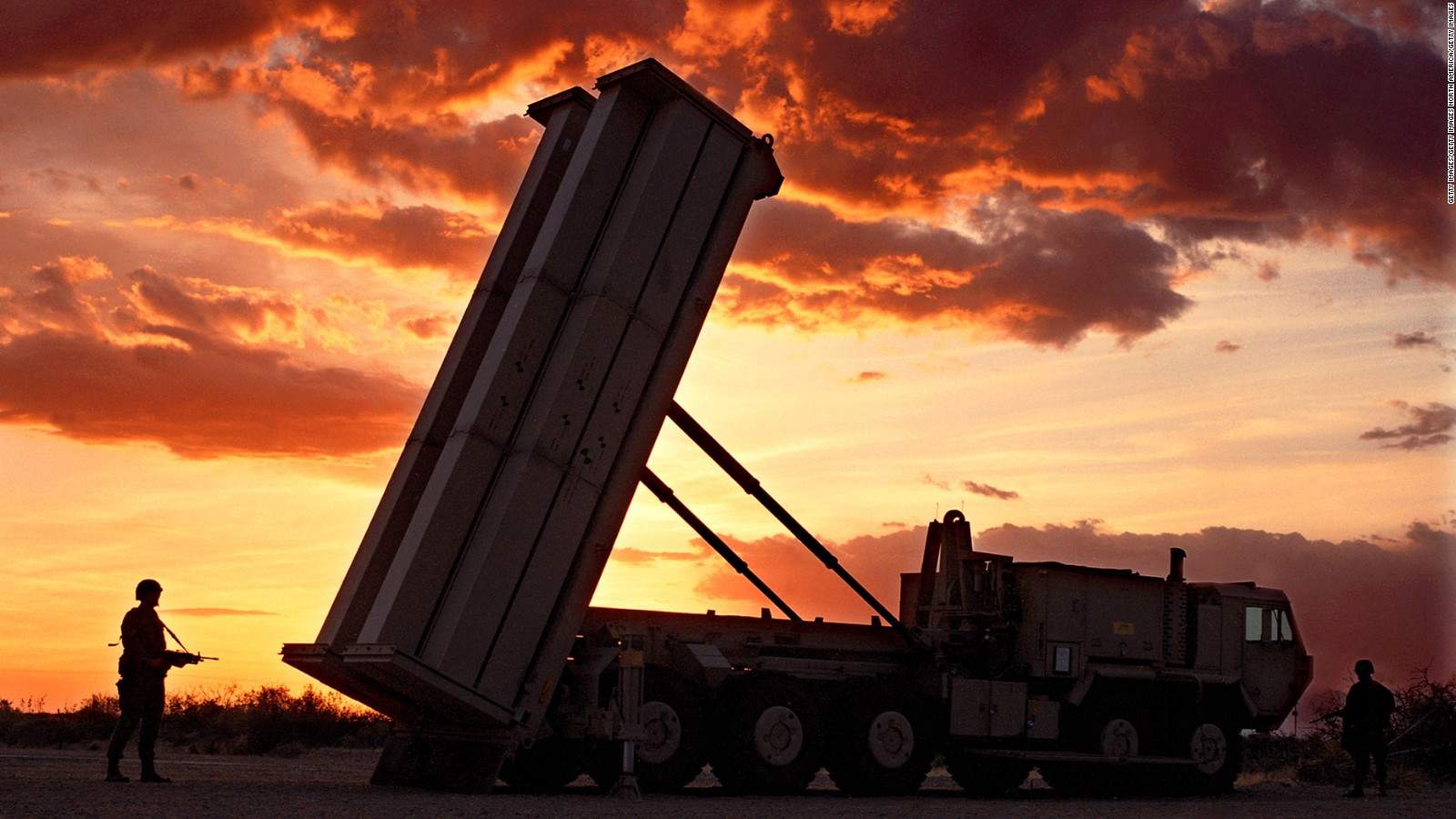Amid the Trump administration’s conflicting signals on whether or not it will ask South Korea to pay more for a controversial American missile defense system, experts suggest restraint and caution to avoid eroding the Washington-Seoul alliance, a change that could impede efforts to counter nuclear-armed North Korea.
Earlier this week, the U.S. military said the Terminal High Altitude Defense (THAAD) system has “the ability to intercept North Korean missiles and defend [South Korea],” though work will continue in the coming months to make the system fully operational. The U.S. and South Korea have been installing key components of the system, located some 125 miles southeast of Seoul, since they agreed to deploy the missile shield against Pyongyang last July.
That announcement came after President Donald Trump alarmed Seoul when he said last week Seoul should pay an estimated $1 billion for THAAD. Seoul repudiated Trump’s remark, and White House National Security Adviser Lt. Gen. H. R. McMaster reassured his counterpart Kim Kwan-jin the current agreement — the U.S. will deploy the anti-missile battery while South Korea will provide the land and pay for its operation and maintenance — stands.
‘Burden sharing-responsibility’
But McMaster later qualified the statement, telling Fox News on Sunday the U.S. would keep its word “until any renegotiation.”
“What the president has asked us to do, is to look across all of our alliances and to have appropriate burden-sharing responsibility,” McMaster said.
While campaigning, Trump called for fairer cost-sharing with Seoul, which paid roughly $821 million in 2016, or about half the cost of South Korea stationing for U.S. troops.
Trump is trying to get Seoul “to recognize that it needs to be investing more [in defense],” Bruce Bennett, a senior defense analyst at the Rand Corporation, told VOA. “He’s trying to sensitize them to the fact that the American taxpayers are paying an awful lot of money to support Korea,” and the relationship needs balance.
In 2005, South Korea’s total 2006-2020 defense budget was estimated at 621 trillion won, but Bennett expects Seoul will spend around 500 trillion, meaning Seoul is underinvested in military capability compared to threats it faces from the North. “Ideally, what South Korea would want to do is to buy their own THAAD battery to cover the Seoul area, while the U.S. covers the area down around Busan,” he said.
Need for clarity, transparency
Joseph DeTrani, a former U.S. special envoy for negotiations with North Korea, said the current THAAD deal should not be scrapped because of the controversy surrounding the cost. But, he added, this may be the right time for Washington and Seoul to discuss misunderstandings about defense-cost sharing.
“There needs to be clarity on a division of labor, a division on a financial responsibilities and so forth,” DeTrani said during an interview with VOA. “Maybe this is a good time to ensure that there is transparency in understanding, indeed, if future missile defense systems are deployed. I think everybody has to understand that who has what responsibility in regards to financing those systems.”
Some analysts said Trump’s THAAD demands carry no weight. They also suggested the Trump administration should avoid further criticisms of Seoul’s contributions to their defense.
Douglas Paal, director of the Asia Program at the Carnegie Endowment for International Peace, said Trump’s surprising cost-sharing demand was “an impulse.” He suggested the president will eventually recant his demands to the South Korean government as he has in the past with such suggestions as South Korea develop its own nuclear weapons to counter the North.
Eroding the alliance
Analyst Paal warned that Trump’s demands on THAAD deployment could influence the outcome of Seoul’s election scheduled to take place May 9. In addition, he said it will impede Washington’s progress with the regime’s nuclear ambitions.
“A weak U.S. and South Korean relationship will be a signal to China, to Russia, and even to Japan that there’s something not coherent about our policy and therefore efforts to get all of these countries in concert to increase pressure on North Korea will be less successful,” Paal said. “And when we have to deal with the consequences of North Korea’s continued development of these weapons systems, we’ve eroded the alliance basis for dealing with that.”
Speaking to VOA, John Delury, a professor of international relations at Yonsei University in Seoul, noted a Washington-Seoul alliance under massive stress can also send a message of division and weakness to Pyongyang, which is “very good at exploiting divisions among neighboring countries.”
“These two need to be coordinated and if the alliance is under massive stress over who pays for THAAD, then it’s going to hamper those efforts.”










